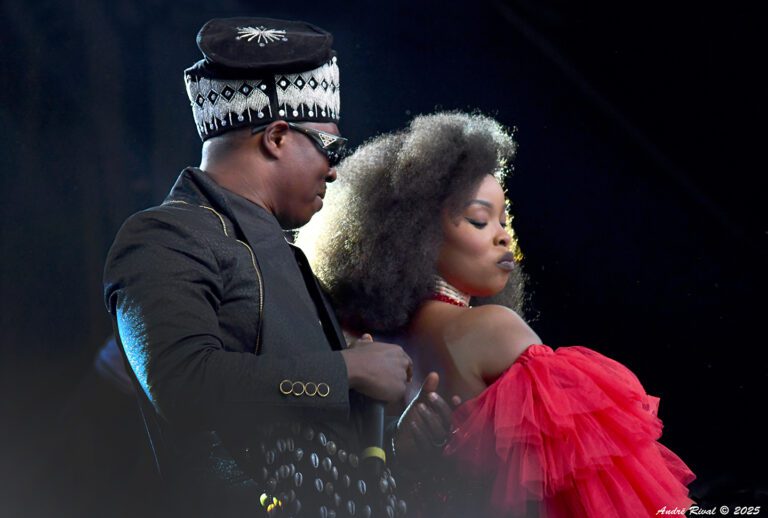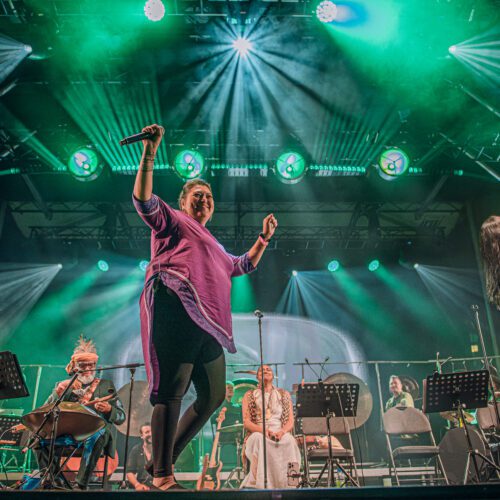I’ve rarely seen the Loto Québec stage so full. Usually, at the start of the 7pm concert, it’s crowded but rarely packed. Here, even before the Guinean diva appeared, festival-goers had arrived early, hoping to get a closer look at their idol. The woman dubbed the new star of Guinean soul was accompanied by the same musicians as her husband Soul Bang’s the day before, at Balattou.
With them, she opts to open with a reggae-style song, and immediately the assembly starts singing the lyrics in unison. Dressed in a red sequined outfit with canvas sleeves, the griot descendant of the legend Mory Kanté has nothing to prove: talent runs through her veins. With a new album released in June, Mousso Chapitre 1, which means woman in Bambara, she plays African maracas throughout the show, on which she brings her microphone closer when necessary.
On the more rhythmic tracks, she reveals her talent as a dancer, and on the calmer ones, her voice transcends us. “This song is for moms. But I don’t want to do it in a sad way, but I want to do it in the joy of living,” she warns us before the eponymous song Mousso. At times, her voice reminds me of Oumou Sangaré’s, especially when she goes high.
It’s not always good to compare, but in this case, the traditional touch is more present than in the register of her husband, who played the day before. She inserts some modern elements into her music, but she does so while retaining the traditional Guinean essence.
The song Bhouloundjouri was a particular hit with the audience, who knew every word and kept asking for more, even after the song was over. An expression I often hear at concerts in West Africa is: “Il faut bisser”, meaning you have to play the song again. I heard this expression in the crowd on Saturday night.
She played several tracks from his most recent album, such as Mon Roi, but also several of his singles, such as Ké Douma Suma. As mentioned during my interview with the couple, there was talk of Soul Bang’s making an appearance at his wife’s concert, as she had done the day before at Balattou. He did just that, appearing in traditional-modern garb, matching hat and sunglasses.
Barely on stage, he took control and Manamba faded into the background for a few songs, before taking her place again in an exchange with the audience as only griottes know how. It was as if she were preaching, with a few powerful melodies to accompany. “I am the heiress of Soumaoro Kanté, my ancestors were blacksmiths, griots. The balafon comes from Guinea, and it’s the Kouyatés who play it,” she teaches us.
A woman nearby seemed to nod in agreement with what the artist was saying, and then Soul Bang’s added its soulful touch.
There were only 4 minutes left, which could have been enough for one last Manamba song before closing, but Soul Bang’s preferred to play his song Djere Lele, which he had played the day before at Balattou. He was thus able to feel the emotions his wife had experienced for almost an hour that evening.
























